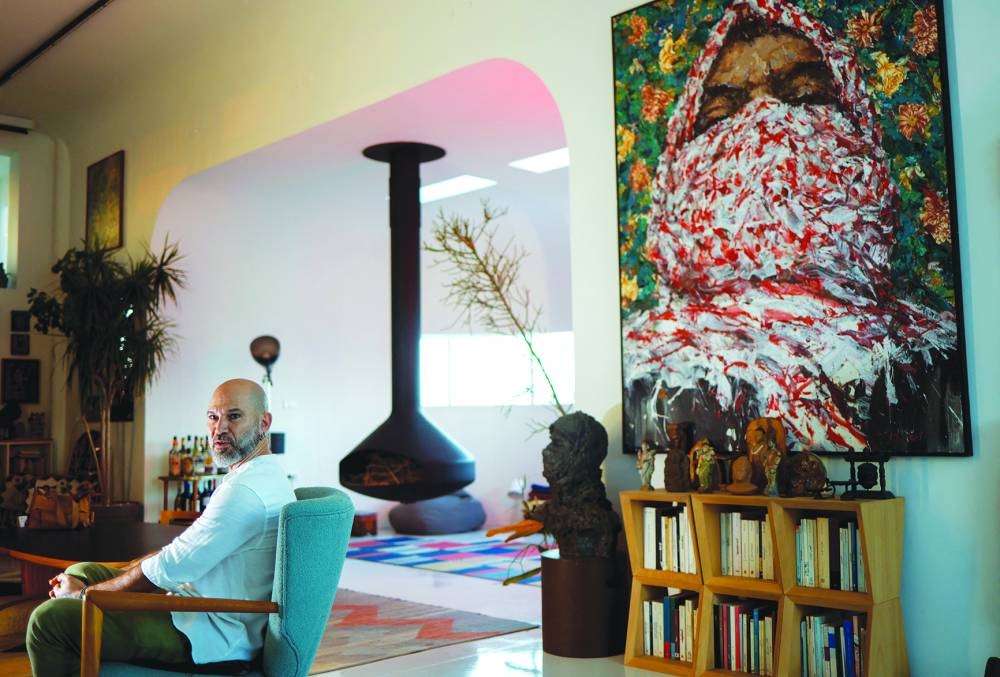Christie’s auction house has removed two paintings by Lebanese artist Ayman Baalbaki from its London sale this week following complaints, according to e-mails seen by Reuters, with the artist criticising the decision as a form of “discrimination”.
Al Moulatham, which stands 2m tall, features a figure wrapped in a red-and-white scarf resembling a keffiyeh, the headscarf common in the Middle East.
Anonymous, part of a series by Baalbaki on protesters around the Arab world, depicts a figure in a gas mask and a red bandana with the Arabic word for “revolutionaries” written on it.
Both are no longer available on the website for Christie’s auction on modern and contemporary Middle Eastern Art.
A third piece by Baalbaki, depicting red flags seemingly on fire, remains on sale.
A Christie’s spokesperson said: “Decisions relating to sales remain confidential between Christie’s and our consignors.”
An e-mail dated October 30 from Christie’s and seen by Reuters said the “decision to remove” the two pieces was “based on complaints”, without specifying what the complaints were or who they were from.
The e-mail said it was “normal policy” to remove pieces “if a work receives multiple complaints” in order to avoid “damaging press”.
Baalbaki, 48, said he suspected a link between the decision and the unfolding war between Israel and Hamas.
“Unfortunately, it’s beyond sad that it would get to this point of violating freedom of expression – that there would clearly be this type of racial discrimination between one community and another,” he told Reuters at his Beirut home.
Baalbaki drew comparisons with a move last month to postpone an award ceremony in Frankfurt for a Palestinian author.
It said it had decided to hold the award ceremony at a different time in a “less politically charged atmosphere”.
“When we start to mess with freedom of expression in art, in novels, in anything that has cultural significance, it snowballs fast,” Baalbaki said. – Reuters

Baalbaki during his interview with Reuters at his apartment in Beirut.
